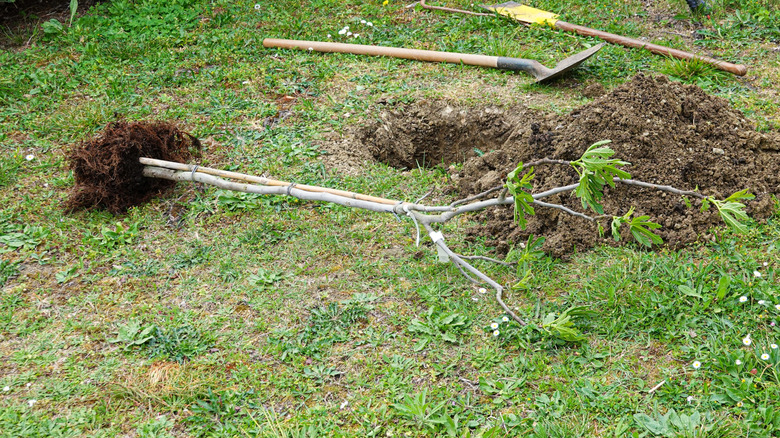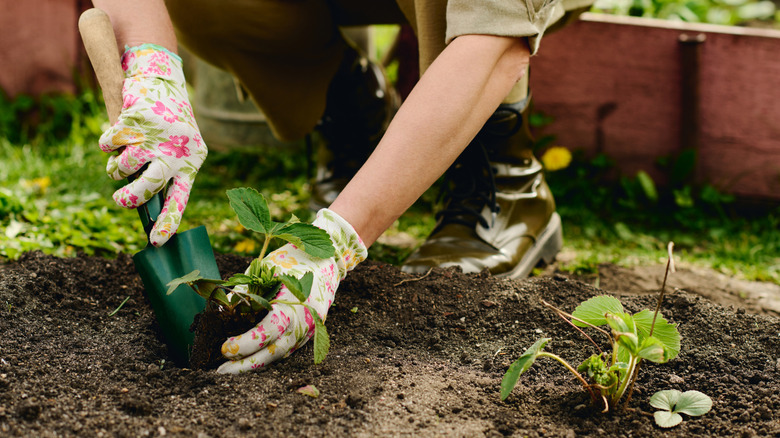How To Salvage Plants That Wind Up Uprooted
It's a scenario no garden lover wants: you walk outside and find your plant knocked over, roots exposed, and soil scattered everywhere. Unfortunately, this isn't uncommon — whether due to strong winds, curious pets, or a heavy rainstorm, plants can sometimes end up completely uprooted. The good news? If you act quickly and gently, you might still be able to save it. By carefully inspecting the damage, keeping the roots from drying out, and replanting quickly, many plants can bounce back from being displaced.
That said, not all plants will survive the trauma. Larger plants with extensive root damage may not be worth the effort, while smaller plants or perennials with lighter damage often have a better chance. If the roots are mostly intact and the plant still has some healthy foliage or stems, it's definitely worth a try. However, if the plant looks more like compost than a comeback story, you might be better off letting it go and looking for new plants to add to your garden.
How to rescue an uprooted plant
Whether you're trying to save plants suffering from wind exposure or salvage what's left after animals have gotten into your garden, the first step is to assess the damage by carefully looking at the roots. If they're white and don't show too much damage, you can go ahead and wet the rootball to prepare it for replanting. Throughout the process, you'll want to make sure the rootball is really moist so that the roots you salvaged don't dry out before you replant them — wrapping them in some wet paper towels or a moist cloth can help you out here.
While inspecting your plant, trim away dead branches and leaves, since they can interfere with photosynthesis and drain your plant's much-needed energy. Put the plant back in the soil as soon as you can — time is of the essence when dealing with uprooted plants, and the shorter they're out of the soil, the better. Once you're done replanting, keep an eye on how your plant is handling the stress and keep watering it to encourage recovery.
While you might be tempted to fertilize your plant to speed up regrowth, it's best to hold off on that. Your plant is already stressed and may be getting over transplant shock. Forcing growth can add stress and lead to the opposite result of what you want. If you don't plan on rebuilding your garden with new plants any time soon, give your original ones the time they need to heal and get their spark back.

